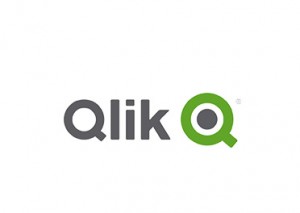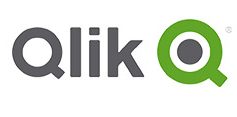Partnership to accelerate access to actionable information for diplomacy and humanitarian relief missions
Qlik®, a leader in visual analytics today announced a strong, strategic partnership with the United Nations bringing the power of  data analytics to global humanitarian efforts to impact efficiency and efficacy. The United Nations, through the Office of Information and Communications Technology (OICT), is leveraging Qlik’s visual analytics platform to create applications advancing United Nations’ missions by aggregating and presenting information in an easy-to-use way that provides valuable insights for prompt action. This partnership comes as part of the Qlik Corporate Social Responsibility “Change Our World” program, which provides software and services to make the good work of humanitarian organizations better by making sense of complex information.
data analytics to global humanitarian efforts to impact efficiency and efficacy. The United Nations, through the Office of Information and Communications Technology (OICT), is leveraging Qlik’s visual analytics platform to create applications advancing United Nations’ missions by aggregating and presenting information in an easy-to-use way that provides valuable insights for prompt action. This partnership comes as part of the Qlik Corporate Social Responsibility “Change Our World” program, which provides software and services to make the good work of humanitarian organizations better by making sense of complex information.
This partnership underscores the United Nation Secretary-General’s recent remarks at Davos:
“I call Agenda 2030 our ‘declaration of interdependence.’ The world is coming to recognize more and more that problems in one country reverberate in another. A crash in one market can drive a crisis around the world. That is why it is so important to make the most of our collective strengths. We will need to work together – across sectors and industries – to address how to realize new approaches to finance, investment, trade and technology. We have seen many examples at the United Nations of how leveraging joint resources and expertise can quickly and effectively uncover solutions. I hope to forge even more and stronger partnerships that have a real impact on people’s lives.”
Through the efforts of OICT, the UN aims to support the analysis of the Sustainable Development Goals by presenting indicators from the massive amounts of data available to them to identify and track improvements to barriers to population well-being.
The Data Portal for Minimum Set of Gender Indicators presents key gender statistics from fields including education, labor market, and health, which are particularly important for measuring differences in the social and economic situations between women and men. Gender statistics seek to identify, produce, and disseminate data reflecting the realities of the lives of women and men, and policy issues relating to gender equality. The app was launched by the Department of Economic and Social Affairs at the 6th Global Forum on Gender Statistics in Helsinki, Finland. The forum is attended by many governments from around the world and UN agencies working on gender issues.
The Security Council Highlights 2015 app analyzes the findings of the 245 meetings, 64 adopted resolutions, and 26 presidential statements. The public can explore agenda items, Security Council missions by location, decisions and voting, and more.
The UN Comtrade Analytics app, designed by the UN Statistics Division, contains interactive visualizations of downloadable time-series data that reflect the very latest trade data available in UN Comtrade. In addition, to the extent possible, the data gaps were estimated and flagged accordingly. Countries’ export and import data are displayed in a world map that is color-coded by trade intensity and visualizations of trade balances, top trading partners, top traded commodities, and more. It can be further customized by selecting individual or multiple countries, regions and/or commodities, and time periods.
“The power of what we do is not about the data, it is what data does for people,” said Lars Björk, CEO at Qlik. “It’s exciting to see the UN’s vision for not just how they can leverage all of their data best, but how they can make some of that data available to citizens of the world for their own understanding. I’m proud that Qlik is helping to unlock data-driven possibilities for the UN, and that together we can use data to change outcomes for governments, regions, and people in need.”







